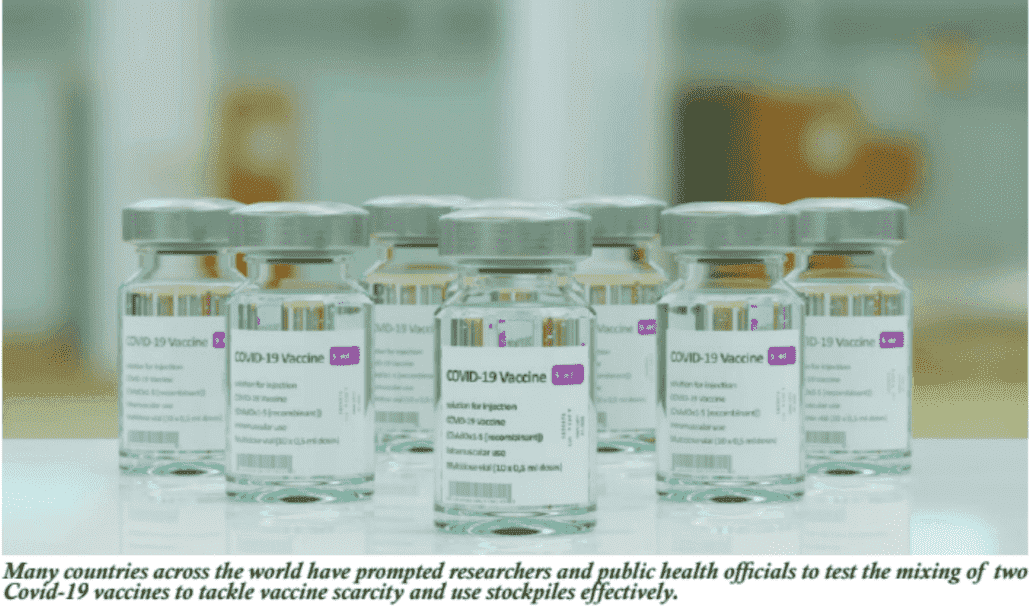
Mixing Covid-19 vaccines is emerging in a few countries as a way to inoculate the population effectively when faced with safety concerns over rare side effects and unpredictable shortage of supplies. Most vaccines against the coronavirus must be given in two doses, but several studies are testing the mix and match of vaccine products wherein one vaccine is given as the first shot along with a second vaccine of a different type or manufacturer is given as the second shot many weeks later. A recent Lancet study conducted in Sweden found that people who received a first shot of the adenovirus vector vaccine, Oxford AstraZeneca Covid-19 vaccine followed by an mRNA vaccine shot such as Pfizer BioN- Tech had a lower risk of infection and a similar or even stronger immune response as compared to those who were immunised with both shots of the same vaccine. Several other studies including the CombivacS study in Spain are now backing up this idea using preliminary evidence. AstraZeneca is also studying if using a first shot of its vaccine and a second shot of Russia’s Ad26 Sputnik vaccine would be effective. Moreover, Russia’s sovereign wealth fund Russian Direct Investment Fund (RDIF), AstraZeneca and R-Pharm had found that the combined use of the Oxford AstraZeneca vaccine and the first component of the Sputnik V vaccine, Sputnik Light, showed high immunogenicity among those inoculated. The RDIF has also initiated partnerships with other vaccine manufacturers to conduct joint studies of a combination of Sputnik Light with other foreign vaccines. However, scientists from the World Health Organisa- tion (WHO) have cautioned against the mixing of vaccines from different manufacturers, citing very less data avail- able on its health impact, while stressing on the need for larger studies to investigate their safety and effectiveness against clinical outcomes. The Strategic Advisory Group of Experts (SAGE) of the WHO had recommended using the same Covid-19 vaccine for both doses. In India, the Drugs Controller General of India (DCGI) had approved a study on mixing Covaxin and Covishield vaccines. While Covaxin is manufactured by Bharat Biotech, Covishield is produced by Serum Insti- tute of India, the biggest vaccine maker in the world. The trial was conducted in two groups -- the first group was given Covishield as first dose and Covaxin as second dose, while the second group was given Covaxin as first dose and Covishield as second dose. The Indian Council of Medical Research (ICMR) further said that mixing Covaxin and Covishield was not only safe, but also demonstrated better results in building immunity against the coronavirus, although there were some side effects such as pain, fatigue, fever, headache and other minor side effects. The results of these studies will have implications for vaccination strategies in different countries.
10 Jan 2022
Rupashree Ravi